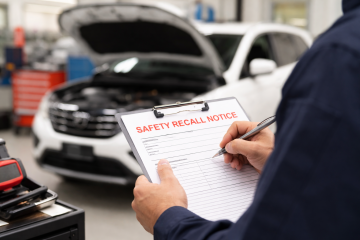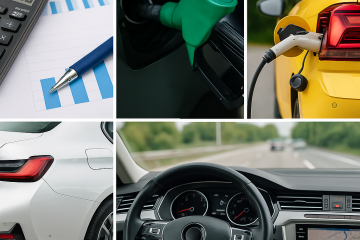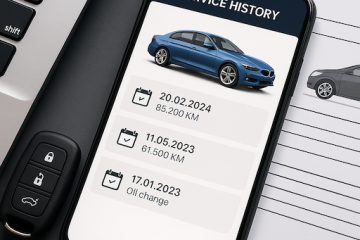Market Insight: Time to Charge Up The Knowledge Base

As ZEV mandate targets move ever closer, One Auto API CEO Mark Fretwell looks at what retailers can do to bridge the knowledge gap and spark EV sales with private buyers…
Reflecting on the conversations and meetings I’ve had in the last month, it’s fair to say that electric vehicles have been right at the top of the agenda.
From new data partnerships we are exploring to digital tools our clients are developing and commercial opportunities that retailers are trying to explore – EVs have been ever present.
Electric vehicles clearly have a role to play in the future of transportation and, via the Zero Emission vehicle (ZEV) mandate, the UK government has set ambitious targets to reflect that.
However, despite rising interest, private EV sales are still falling short of where they need to be.
According to the most recent Society of Motor Manufacturers and Traders (SMMT) figures, battery electric vehicles (BEVs) accounted for 16.9% of new car registrations in April – a decent increase on last April’s 15.4% but there’s a catch.
Fewer than one in six new BEVs bought in April went to private buyers.
And that’s despite the widest ever choice of BEVs (the SMMT confirms more than 100 models currently available in the new car market) and an increasing number of manufacturer incentives trying to entice people into their electric vehicles.
So what more can be done to overcome private buyer reluctance?
Well, there are widely reported calls for (and compelling arguments that could justify) government support in the form of tax incentives – either via reduced VAT on new BEV purchases or on public charging tariffs.
In addition, there are suggestions that a vastly improved charging infrastructure would help boost buyer confidence. There is currently one standard public chargepoint for every 35 plug-in vehicles on the road – a figure almost unchanged from last year when it was one for every 36.
But, what about closer to home?
What can new and used car retailers do themselves to generate private EV sales?
A crucial piece of the puzzle that can make a real difference is education. This is an area where forward-thinking dealerships can step in and become champions for EV adoption.
Especially given some of the confusion we see in the wider public domain which can damage the reputation of electric vehicles. Within the last week a father who was taking his child to Alder Hey hospital in Liverpool says he was told to park next to nearby grass because his car “could explode.”
By prioritising buyer education and building a specialist sales team, retailers can bridge the knowledge gap, explode damaging myths (no pun intended) and start to unlock the full potential of the private EV market – for both new and used customers.
Empowering sales staff: knowledge is everything
Sales teams are the frontline of customer interaction and equipping them with in-depth knowledge about EVs needs to go beyond just technical specifications. It’s about understanding customer anxieties and addressing them head-on.
Training programmes should ideally cover a range of topics.
Let’s take EV range anxiety as a starting point. Successful training programmes need to educate salespeople on real-world range expectations, factoring in the impact of driving style and weather conditions – given these factors can be much more influential than with conventional ICE vehicles.
The latest figures from EV Database, for example, show that if someone is driving an Audi Q8 e-tron around town on a sunny day they can expect a range of 375 miles.
However, if they’re travelling cross-country on the motorway on a cold and wet afternoon they might see this range cut almost in half – to 190 miles.
A huge difference which potential buyers may not be anticipating.
It would also be helpful for team members to be up to speed with information about the growing network of charging stations, both public and private.
Hand in hand with this is an understanding of different charging types (slow, fast, rapid), home charging options, and the associated costs.
Why is this important? Well, let’s consider our Q8 e-tron again.
By overlaying our own benchmark tariff data on EV Database real range figures, we can see that if someone has charged at home before their sunny drive around town they could see a cost of less than 2p per mile, which might make them smile even wider in the pleasant driving conditions.
However, if they head to the public charger for the cold and wet motorway trip, this cost could be approaching 40p per mile – more than a twenty fold increase that may leave them almost as miserable as the weather.
Customer education drive
To support a fully primed and prepared sales team, showroom displays and marketing materials can prioritise wider EV education alongside comprehensive product information.
Interactive displays in the showroom, for example, can showcase EV features, range maps, and charging infrastructure availability.
Extended EV test drives also allow potential buyers to start to experience real-world EV performance and create an appropriate opportunity for sales teams to start to address any range anxiety concerns.
And throughout the customer buyer journey there are plenty of opportunities to provide clear, detailed information on EV basics, charging options, and ownership benefits – be it via vehicle profiles on websites, in brochures or during explainer videos.
Building trust through transparency
Above all else, transparency is the key to building trust with potential EV buyers.
When it comes to range expectations, be honest. Don’t overpromise on range. Use all available data to educate customers on all of the factors that can have an impact and provide resources for trip planning.
Similarly on running costs, it’s important not to overstate the benefits. EV evangelists and keen sales people may be tempted to mention costs below 3p per mile but this has to be balanced with realistic expectations across a range of scenarios to avoid feeding the plethora of misinformation about EVs.
When it comes to charging infrastructure, there’s an opportunity to acknowledge its ongoing development and highlight existing options and future plans.
When it comes to cost of ownership, take time to understand the potential buyer so you can provide tailored information about potential charging and maintenance demands over the life of a vehicle.
Through honest conversations you can set realistic expectations. You become a trusted voice. You establish your business as a destination of choice for quality vehicles of all types.
And, as this ripple of positivity starts to spread far and wide, the UK’s private EV market might finally have the opportunity to shift into next gear.
Tech consolidation, automation and EV adoption
Given the multitude of tasks already facing dealership teams you may be wondering where all of the time will come from to undertake all of this education and trust building.
It’s an important question and, reflecting again on conversations I’ve had in the past month, there may be an answer.
Amidst a continuing trend of tech consolidation, a number of the discussions I’ve really enjoyed have centred around how our platform and data partners can support new digital solutions that will improve retailer efficiency, enable smarter resource allocation and transform customer experience.
And, without giving anything away, as knowledge and experience around AI and automation continues to grow, so will the number of digital tools retailers have at their disposal.
AI-powered chatbots, for example, can answer frequently asked questions about EVs, qualify leads, and schedule appointments, further alleviating the burden on sales teams.
In addition, AI-powered automation can identify and follow up with new leads to free up even more time for salespeople to engage in meaningful face to face conversations with potential EV buyers.
Crucially, this isn’t about using tech to replace your talented team.
It’s about giving them the tools to shine.
Are you ready to be a leading light?
Here to help – let’s talk.
If you have any questions about how you can use data to position your business for future success, we are here for you. Click here to schedule a free 30-minute consultation – we will use the time to understand your business, project and goals to see how we can add value.


